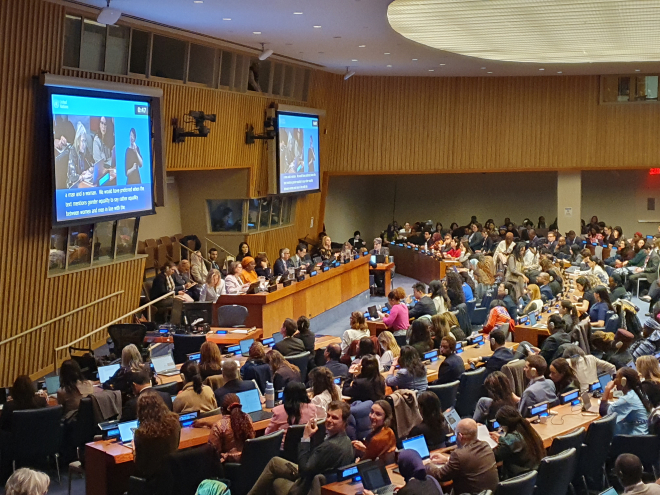28-03-2025
Contrary to perhaps all our expectations, at the recent 69th UN Women's Summit in New York, a Political Declaration on the rights of all women and girls was unanimously adopted. Thirty years after the 'Beijing' agreements at the Fourth World Conference on Women in China in 1995, it was uncertain until the very last minute whether the 193 UN member states would find consensus.
This women's summit is officially known as the United Nations (UN) Commission on the Status of Women, but is more commonly referred to as the CSW. Each year, member states of the UN gather in this process to make commitments to promote gender equality and the empowerment of women and girls. Thousands of representatives from civil society, including local and international women's, LGBTQI, and development organizations, researchers, and other experts, come to New York to share their knowledge, network, and discuss and monitor the progress of our countries. There were also many people
excluded from participating in the CSW due to further restrictions by the United States. During the two weeks of the CSW, hundreds of side events take place where experiences and good practices are presented and collaborations forged.
WO=MEN facilitates a broad CSW network in the Netherlands throughout the year where knowledge and experience are shared and, in collaboration with Atria, joint recommendations are developed towards the Dutch delegation. See this year's recommendations here. WO=MEN also collaborates with allies from other countries to make optimal use of everyone's knowledge and experience. Every year, WO=MEN organizes the selection of an NGO representative, this year Quirine Lengkeek from Mondiaal-FNV, who actively supports the delegation with knowledge and experience and forms a bridge for knowledge exchange between the delegation and societal organizations and experts in the Netherlands and abroad.
Although the Dutch delegation had already made it clear this year that, given the priorities of the current cabinet Schoof, they could no longer play a leading role in the CSW process, the EU as a negotiating bloc was still able to make a relatively positive contribution to the negotiations. Of course, there were many troublemakers at the table who care little for gender equality and women's rights, including the Vatican, who despite their observer status often have much to contribute, but especially the United States was problematic. Although they had not actively participated in most of the negotiation process in February, they seemed to be sticking their necks out at the last minute to block the deal. Thanks to the intervention of – surprisingly – Saudi Arabia, who was this year's chair of the CSW, it ended with a whimper. Or actually, more precisely, with a loud applause.
Currently, an important question is to what extent the cabinet will address and mention this renewed Beijing commitment and action points in upcoming documents on emancipation (Ministry of Education, Culture and Science) and 'development aid' (Ministry of Foreign Affairs). WO=MEN and its members are doing everything they can to keep drawing attention to this.
